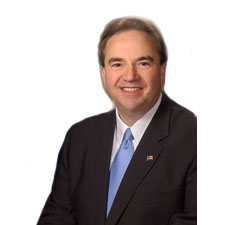
Bolling said, “Over the past few months, a series of unfortunate events have revealed to us several deficiencies in Virginia’s current ethics laws. As a result, the confidence of the people of Virginia in their state government has been eroded. In order to begin the process of restoring this confidence, we need to take immediate action to strengthen Virginia’s ethics laws and the proposals I am releasing today are designed to do just that.”
To address these issues, Bolling, through the Virginia Mainstream Project, proposed the following ethics reforms:
- Banning the receipt of gifts in excess of $250 in aggregate for a calendar year.
- Expanding gift reporting requirements and limitations to spouses and dependent family members.
- Requiring the disclosure of additional information regarding Board memberships, income, investments and loans.
- Prohibiting the use of campaign funds for personal expenditures.
- Prohibiting lawyer legislators from representing clients before state agencies.
- Prohibiting law firms who are assigned business by the Office of the Attorney General from making political contributions or giving other gifts to the Attorney General, any candidate for Attorney General or any member of the Attorney General’s staff.
- Creating a statewide Ethics Review Commission to review ethics related complaints against elected officials and issue advisory opinions on ethics related issues.
The specific ethics reforms and additional details proposed by Lieutenant Governor Bolling can be found here and below.
Lieutenant Governor Bolling created the Virginia Mainstream Project in June of this year. At that time he indicated that one of the goals of the Virginia Mainstream Project was to propose specific policy solutions to the important issues facing Virginia. These ethics reform proposals are the first policy proposals released by the Virginia Mainstream Project. Additional proposals will be made in the weeks to come.
Bolling said, “This is an election year in Virginia and it is important for candidates seeking our support to speak out on the important issues facing our state. Clearly, we need to make significant changes to our ethics laws, and by putting forth a series of specific proposals it is my hope that we can begin discussing these issues in earnest. I call on every candidate for Governor, Lieutenant Governor, Attorney General and the General Assembly to join me in supporting these proposals, and I challenge the candidates for Governor to pledge to implement these proposals for themselves and their staffs through Executive Order until they can be acted on by the General Assembly.”
###
ETHICS REFORM PROPOSALS FOR 2014 SESSION OF THE
VIRGINIA GENERAL ASSEMBLY
BAN ON GIFTS IN EXCESS OF $250 PROHIBITION ON GIFTS AND CONTRIBUTIONS FROM CERTAIN LAW FIRMS
- Ban all gifts to any elected official, their spouse or dependent family members that are in excess of $250. This limitation would apply to an individual gift or combination of gifts from the same person or entity in any calendar year. (There are currently no gift limitations for elected officials and no reporting requirement or limitations for gifts to spouses or dependent family members.)
- Prohibit any law firm that receives legal assignments from the Office of the Attorney General from making any political contribution or giving any gift or other thing of value to the Attorney General, any member of the Attorney General’s staff, or any candidate for Attorney General.
DISCLOSURE REQUIREMENT ENHANCEMENTS
- Require that all gifts in excess of $50 to an elected official, their spouse and dependent family members be reported, regardless of value. (Currently, there is no requirement for reporting gifts to spouses or dependent family members.)
- Require that elected officials disclose all sources of income greater than $1,000 for themselves, their spouses or dependent family members. (Current state law only requires disclosure of income in excess of $10,000.)
- Require that elected officials disclose all memberships on Boards or other committees of public or private companies that are held by themselves, their spouse or dependent family members. (Current state law only requires the disclosure of paid Board memberships.)
- Require that elected officials disclose all securities and other investments that are held by themselves, their spouses or dependent family members in public or private companies. (Current state law only requires disclosure of investments in any company that are greater than $10,000.)
- Require that elected officials disclose all loans that are held by themselves, their spouses or dependent family members from any individual, corporation or other entity that are not secured by real property of a value equal to or greater than the amount of the loan. Creditors must be identified. (Current state law requires general disclosure of loans in excess of $10,000, but creditors do not have to be identified.)
- Require that disclosure reports be filed semi-annually, as opposed to annually, which is the current practice.
PROHIBITION ON PERSONAL USE OF CAMPAIGN FUNDS OR FUNDS HELD BY A POLITICAL COMMITTEE
Prohibit the use of campaign funds or funds held by any political committee for the personal benefit of any candidate or elected official, or their spouse or dependent family member, unless such funds are being used as reimbursement for expenses incurred on behalf of the campaign or political committee. (Similar restrictions are currently in place for committees that are being disbanded.)
PROHIBITION ON LEGISLATORS REPRESENTING CLIENTS BEFORE STATE BOARDS, COMMISSIONS AND AGENCIES
The practice of legislators representing clients before state agencies can create the appearance of a conflict of interest and place state employees and appointees in compromising positions. Legislators have a direct impact on agency budgets and staffing. Legislators are also involved in the confirmation of many appointed members of state Boards and Commissions. This practice should be discontinued.
* This prohibition would not apply to lawyer legislators representing clients in state courts.
ESTABLISHMENT OF STATE ETHICS COMMISSION
Establish a statewide Ethics Review Commission to investigate malfeasance, disclosure and ethics complaints against elected officials. The Commission could also assist in providing advisory opinions to elected officials and others on matters related to public service. The Commission would be composed of five members appointed by the Supreme Court of Virginia.










